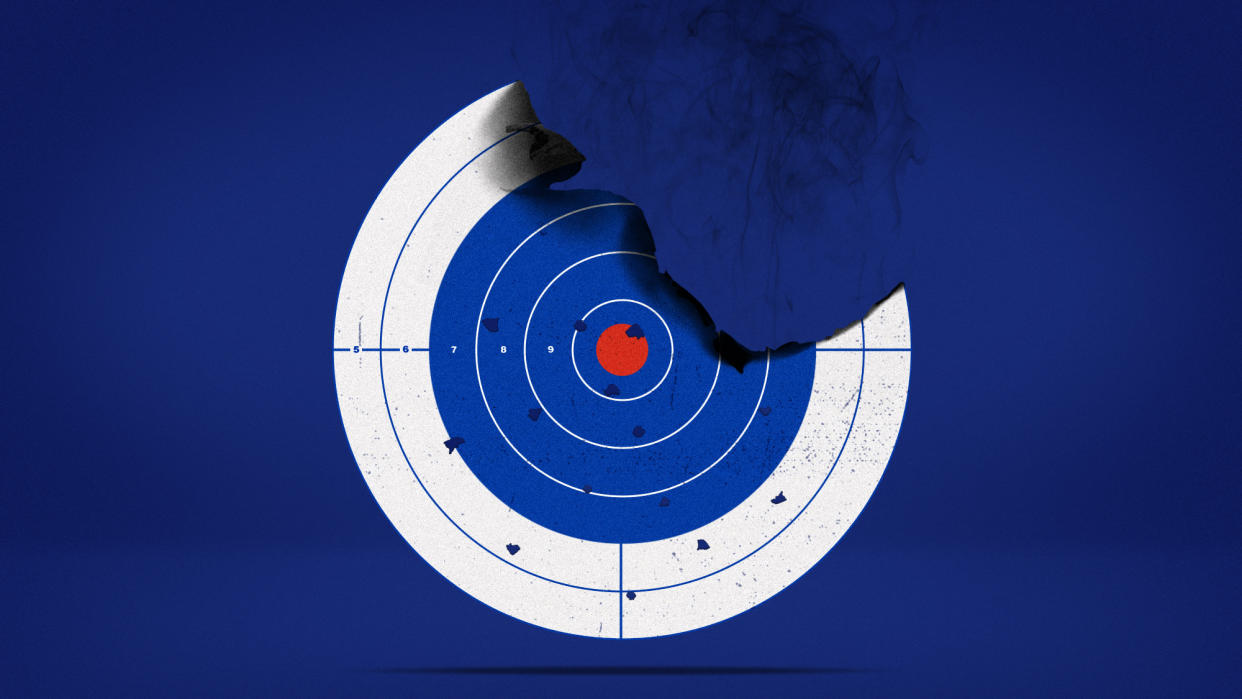Why is Islamic State targeting Russia?

- Oops!Something went wrong.Please try again later.
Opportunity as well as ideology is likely to have led Islamic State's Afghan off-shoot to select Moscow as the target for Friday's deadly terror attack, experts say.
Despite an immediate claim of responsibility from IS, Vladimir Putin has sought to deflect blame to Ukraine for the attack at the Crocus City Hall music venue that left at least 137 people dead and hundreds more injured.
But "from the outset", said Gavin Mortimer in The Spectator, it was "obvious to seasoned observers" who was behind the massacre. The attackers "cleaved to the same ideology as those who have this century murdered thousands of innocent men, women and children in New York, Bali, Madrid, London, Brussels, Paris, Manchester and Nice".
And with Russia's security services distracted by the Ukraine conflict and domestic opposition to the war, the Islamists seized the chance to target Moscow.
What did the commentators say?
Islamic State Khorasan Province (IS-K) is the branch of IS that has "most consistently and energetically" attempted terrorist attacks across Europe, including in Russia, said Greg Barton, chair of global Islamic politics at Deakin University in Melbourne, on The Conversation.
Both IS in general and IS-K in particular have a long list of grievances against Russia. They cite the Soviet Union's occupation of Afghanistan in the 1980s; a crackdown on Muslim minorities in the North Caucasus; Russia's wars in Chechnya; and the crucial role Moscow played in propping up Bashar al-Assad's regime during Syria's decade-long civil war.
Russia is of "particular interest" to IS and is "targeted because it claims President Vladimir Putin and his regime are killing Muslims", said Sky News.
The Nord Ost theatre siege in 2002 and the Beslan massacre in 2004 were the most notorious attacks by Islamist groups inside Russia, and the threat of another large-scale incident had been growing in recent years.
The FSB, Russia's security service, announced earlier this month that it had foiled an attack by IS-K on a synagogue in Kaluga, southwest of Moscow. The US embassy in Russia subsequently warned that it was "monitoring reports that extremists have imminent plans to target large gatherings in Moscow, to include concerts".
But it was also "likely opportunity and personnel that led the group to select a soft target in Moscow", said Barton on The Conversation. The majority of IS-K militants arrested across Europe, including in Russia, over the past two years have been Russian nationals or people from Central Asia with links to Russia.
IS-K "has even rolled out a Russian-language propaganda wing", Lucas Webber, co-founder of MilitantWire, which produces analysis of militant activity, told the Financial Times (FT). "It has placed heavy focus on inciting supporters to carry out attacks against Russia."
Vera Mironova, an associate fellow at the Davis Center at Harvard University, said the group chose Moscow possibly because it was relatively easy, in contrast to planned attacks in other European countries that have been foiled in recent months. "It's about the convenience of the target," she told the FT.
The group will have hoped to "sow chaos in Russia at a time when it is fighting a war in Ukraine", said Sky News. The attack puts the spotlight back on Russia's security services, and on Putin's promise to deliver "peace and stability" following his election for a fifth term.
The FSB had previously "focused almost entirely on the Islamist terror threat", said the FT, but since 2022 the agency has "shifted its focus" to Ukraine. Those it has accused of "terrorism" have predominantly been Russians protesting against the war, according to an analysis of official statements by the independent Novaya Gazeta Europe newspaper.
What next?
Like all terror groups, IS-K's "grand design is to push people to extremes and to try to elicit an overreaction and overreach", said Sky News.
In the short term, the attack will raise the profile of the group outside central Asia and broaden its recruitment pool.
Putin's response will depend on whether he and his propagandists in the media continue to try to maintain that Ukraine was involved, or instead pivot to accept IS-K's responsibility.
Either way, said Barton, the Kremlin is "likely to respond with a wave of violence, cracking down on Russia's Muslim minority communities in the North Caucasus region and beyond". Friday night's attack in Moscow was "nightmarish", but "sadly the horror is likely to be just the beginning".

